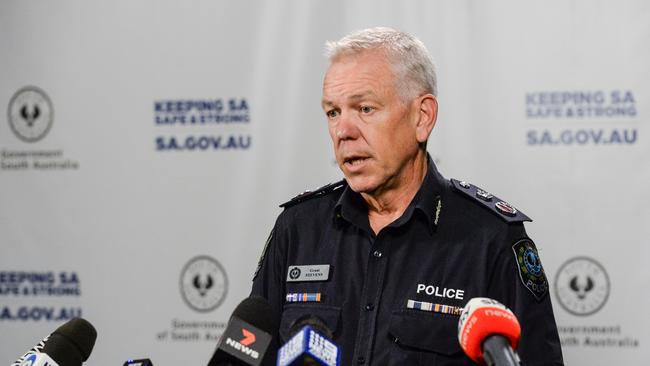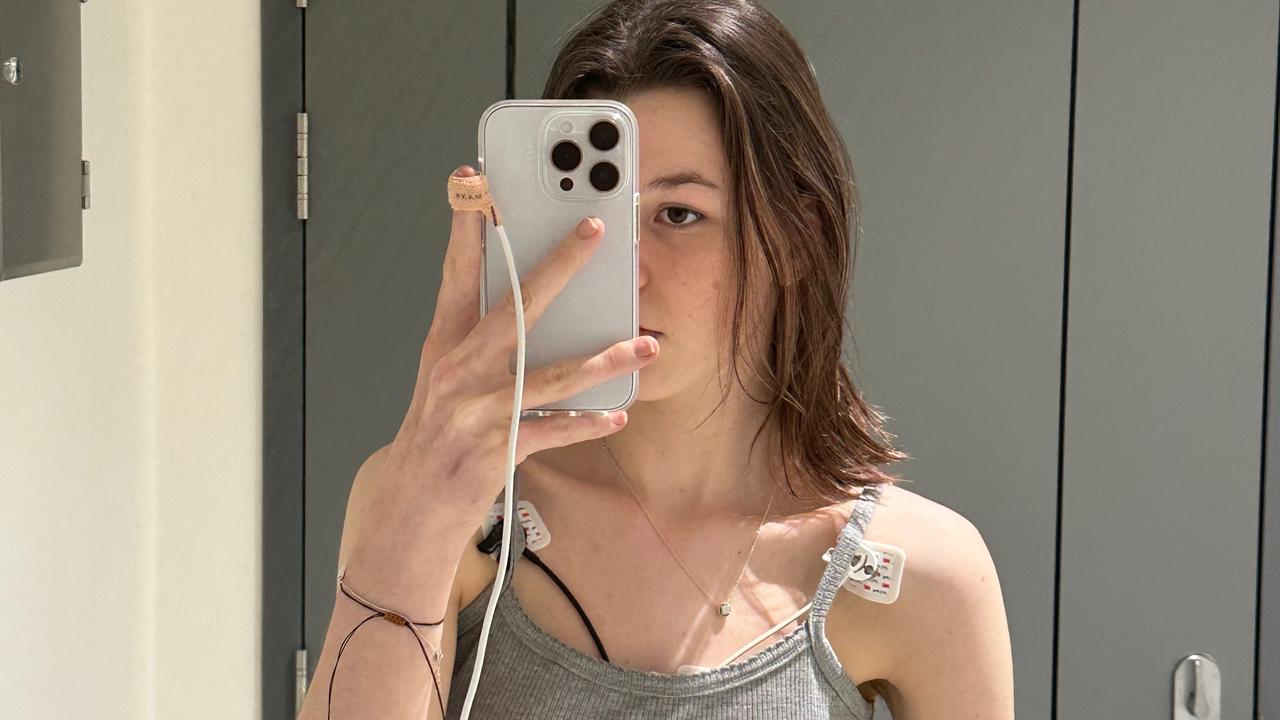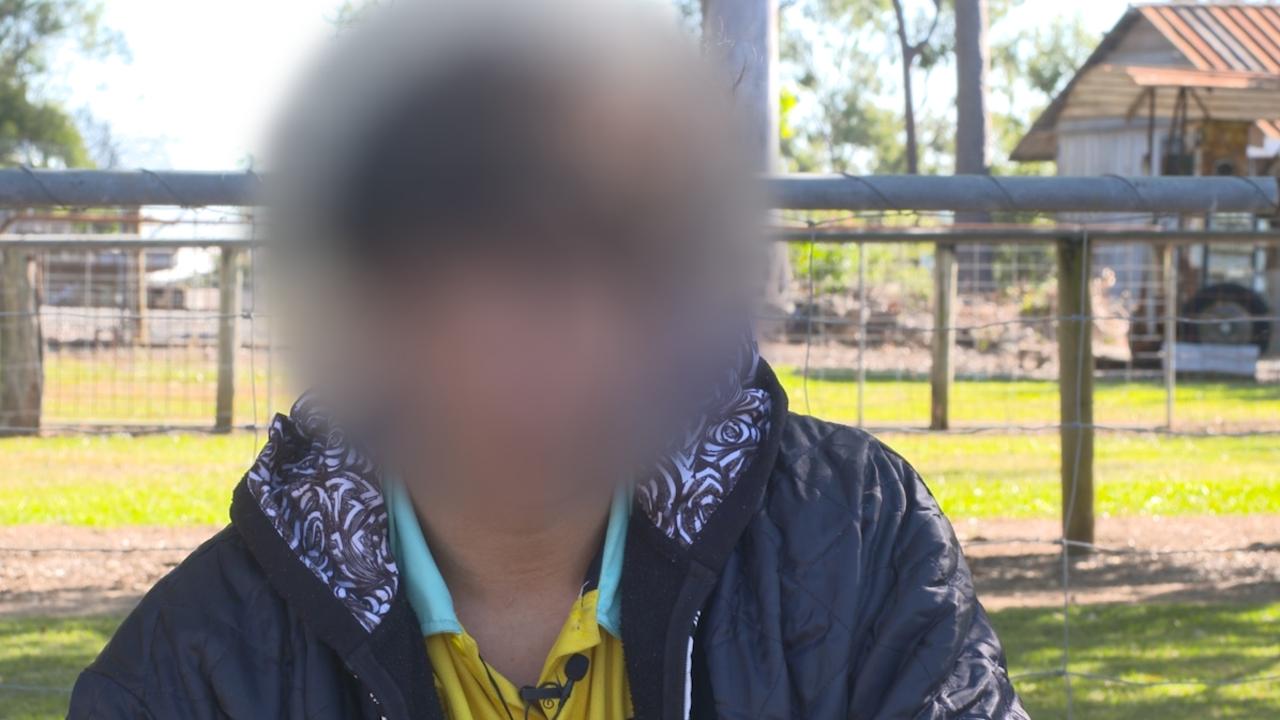SA’s hospitality, private function rules relaxed from Saturday
Singing and dancing will be allowed at private functions as SA confirms a raft of relaxed Covid rules – and isolation rules are under review.
Coronavirus
Don't miss out on the headlines from Coronavirus. Followed categories will be added to My News.
The time Covid-19 positive people spend in home isolation rules are under review as are close contact requirements, the state’s top cop has revealed.
The state’s Covid ready committee on Thursday debated whether quarantine rules should be relaxed as South Australia exits the Omicron wave.
In a further sign of the current wave has passed, SA Health on Friday reported a sharp fall in the number of people being hospitalised, which is an indicators authorities watch most.
On Friday night, 112 patients were being treated in hospital – down 30 cases in the past 24 hours while the number of people in ICU is stable. Daily cases fell by 21 to 1,714 patients.
The elective surgery legal directions, which banned all emergency operations, was scrapped ahead of all procedures being allowed from Monday.
Announcing late on Thursday a raft of restrictions that would be eased from this weekend - as foreshadowed by The Advertiser - Police Commissioner Grant Stevens also flagged the isolation review.
“We did briefly discuss whether there was scope to consider changes to the isolation period for Covid positive people and the quarantine period for people who are identified as close contacts,” he said during the briefing at police headquarters.
“Prof Spurrier will... take that away and give further considerations and it may come up in future meetings but (there was) no decision today (Thursday).”
Currently SA Health rules require Covid patients to serve 10 days isolation. Close contacts must serve a week while families must be in isolation for 14 days.
Legal directions also force unvaccinated people into a fortnight’s quarantine.
Prof Spurrier said her team was monitoring the Covid-19 situation and interstate rules.
She said seeing a decrease in case numbers, and hospitalisations, “reflects a balance between full vaccination status - a third dose rates - the amount of community contacts and how effectiove quarantine rules were.
“Any changes to quarantine requirements for close contacts or isolation for positive cases needs to be seen and evaluated within this context,” she said.
Working from home rules were also discussed at Thursday’s CRC meeting and how it could be increased from a current 50 per cent but, Mr Stevens said no decisions were made.
On Friday, Mr Stevens, who authorises all legal directions as state Covid co-ordinator, said Prof Spurrier had “undertaken to go away and have a look at that and review the arrangements we have in South Australia”.
“It’s important to point out that as we move through a pandemic response, the way we deal with things does change based on the prevailing circumstances,” he told Five AA radio.
“There may be changes to that before we get any further relaxation of restrictions, but it really is a matter for Professor Spurrier to take a proper and considered view on and then make changes in accordance with that.”
He also told ABC Radio that “I’ve backed the position we’ve taken... in terms of identifying close contacts and requiring people to quarantine”.
Hospitality venues will receive a welcome boost from Saturday with stand-up drinking allowed indoors and dancing permitted at private functions.
Mr Stevens announced on Thursday that South Australia’s hospitality rules will relax from 12.01am on Saturday, February 26, following the latest Covid Ready Committee meeting.
Hospitality restrictions will be lifted to one person per 2sqm indoors with stand-up drinking allowed, while there will be a three people per 4sqm density limit where only seated consumption is available.
Buffets will now also be allowed.
Private functions, including weddings, at licensed venues will be limited to one person per two square metres with dancing and singing permitted, and a maximum of 150 people.
Fully seated outdoor events will have no density restrictions while outdoor stand up events will be limited to three people per four square metres.
There is no change to density limits on home gatherings, with a maximum of 50 people allowed per household.
“All the indicators are things are looking very positive in South Australia,” Mr Stevens said.
But he said there had been no conversations about mask rules and mask requirements remained the same.
“There is a potential for case numbers to rise, as I said we do expect fluctuations, but we’ll be watching closely on the impact it has on hospital admissions particularly,” he said.
“I don’t think masks are here to stay forever.”

“I think there’s a strong rationale for keeping masks in place at the moment, but they’ll certainly be on the agenda for a point in time when the requirement to wear masks will be removed.”
The announcement comes after South Australia’s daily Covid cases spiked on Wednesday.
Wednesday’s 1958 case total was the highest number of daily cases since Australia Day, records show.
Mr Stevens said despite the increase in cases the easing of restrictions was based on SA Health advice.
Mr Stevens also said he could not guarantee restrictions would not be reintroduced in the future saying authorities could not commit to permanently ending restrictions..
Mr Stevens said the easing of restrictions could be reviewed more regularly than every fortnight depending on case numbers following the latest changes and that the upcoming state election on March 19 had not factored into the committee’s decision to ease restrictions.
New figures have also revealed school absences have risen since all students returned to face-to-face classes.
The Education Department said that on Wednesday there was a 1.7 per cent absentee rate – equivalent to 2900 of the 173,000 students in government schools.
That was up from a rate of 0.9 per cent on February 10 when students in years 2-6 and 9-11 were learning online.
There were 320 teachers and 219 support staff absent due to Covid-19 – either infected, isolating or caring for someone.
This was up from 206 teachers and 174 support staff on February 10.




